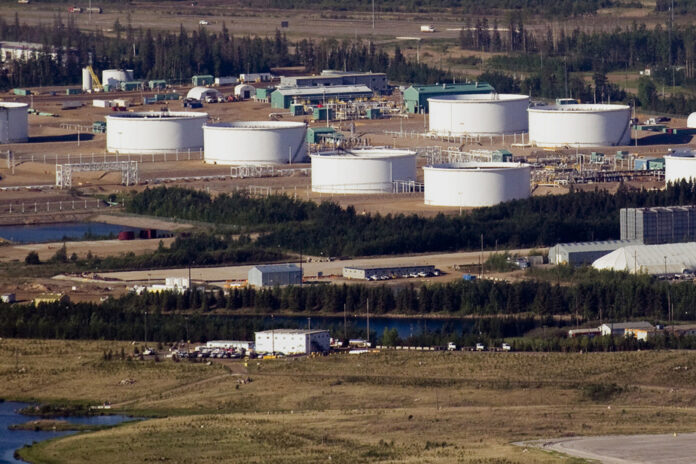(New York) Oil prices ended down on Monday, forced to bow by a new rise in bond rates, which raises fears of a strangulation of the economy, and thus of the demand for black gold.
The price of a barrel of Brent from the North Sea for delivery in December fell 1.61%, to close at $90.71.
As for the American West Texas Intermediate (WTI), with maturity in November, it lost 2.16%, to 88.82 dollars.
“The initial surge in crude oil (in the first part of the session) quickly calmed down as bond rates soared,” noted Edward Moya of Oanda in a note.
For Andy Lipow, of Lipow Oil Associates, “the fact that the American government has avoided the “shutdown” (suspension of certain state services due to lack of budgetary agreement) and thus remains at high levels of public spending translates into rising interest rates.”
Sustained public spending thus fuels demand and can impact inflation, which is likely to encourage the American central bank (Fed) to keep its key rates high or to increase them further.
Congress managed to vote, at the last minute on Saturday, on a measure allowing the deadline to reach an agreement on the federal budget to be pushed back to November 17.
On Monday, the yield on 10-year U.S. government bonds rose to 4.70%, its highest level in nearly 16 years.
This surge is causing real estate loan rates and the cost of business credit to soar, which is putting pressure on consumption and demand for oil, explains Andy Lipow, for whom the threshold of 100 dollars per barrel of Brent appears to be moving away. .
The market expects nothing from the meeting of the Joint Ministerial Monitoring Committee (JMCC) of the Organization of the Petroleum Exporting Countries (OPEC) alliance on Wednesday. For Eurasia Group analysts, “OPEC (enlarged group) should keep its volumes unchanged”.
For the firm, the alliance is closely monitoring possible signs of weakening demand and “sees considerable risks of a global economic slowdown during the next two or three quarters”, which encourages it to control its production.
The World Bank lowered its growth estimate for China in 2024 on Monday and now expects 4.4%, compared to 4.8% in April.
On Saturday, the PMI activity index in China for September appeared at a significantly lower level than expected, whether in the manufacturing or services sector.















